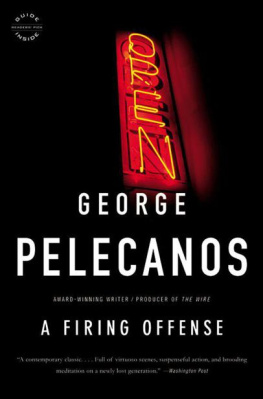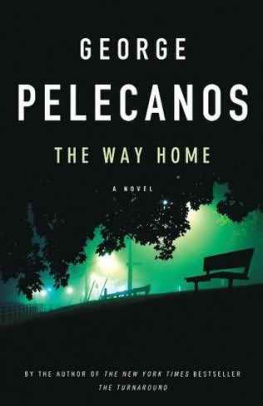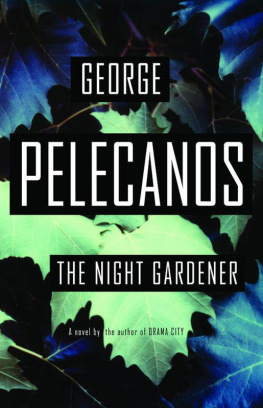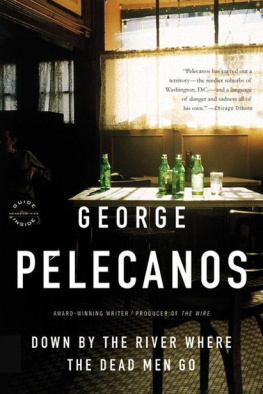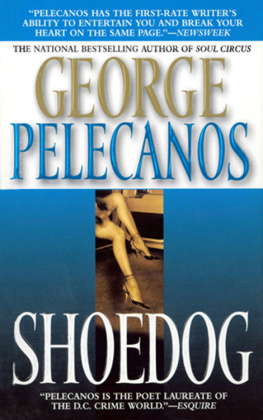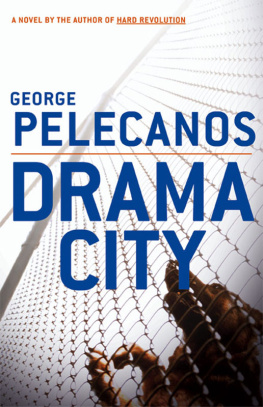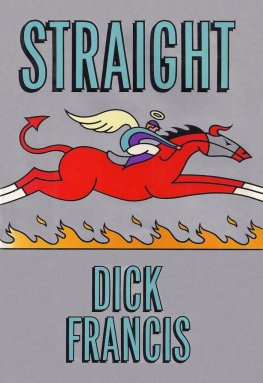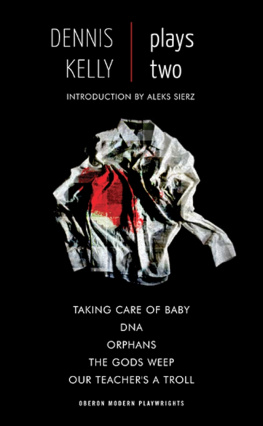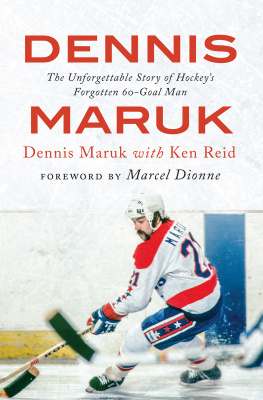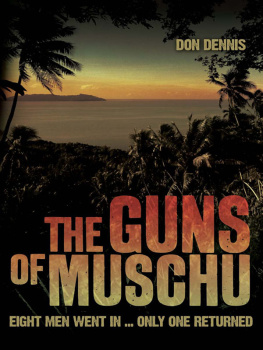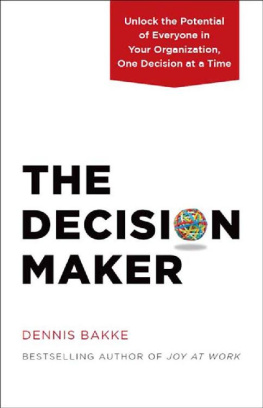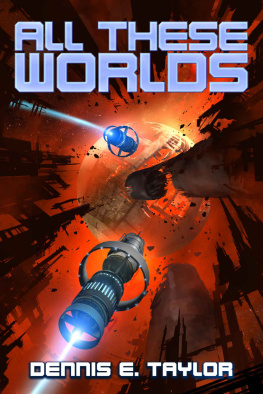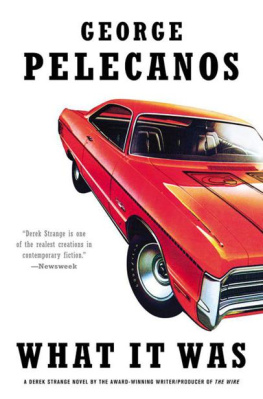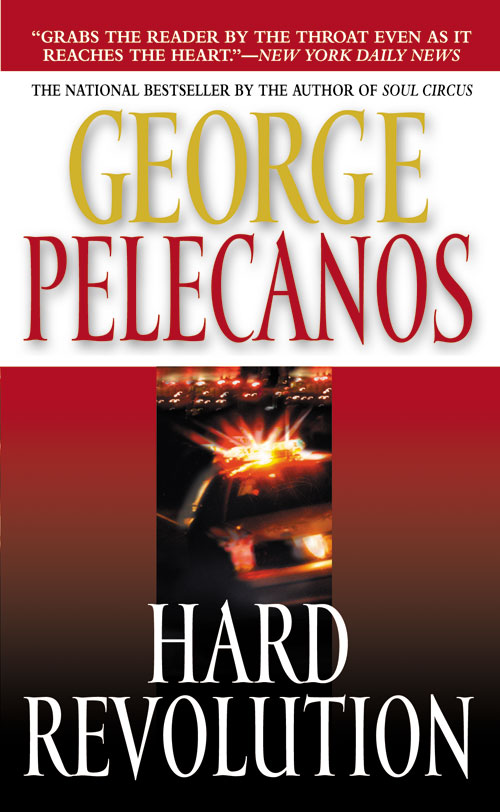Copyright 2004 by George P. Pelecanos
All rights reserved. No part of this book may be reproduced in any
form or by any electronic or mechanical means, including information
storage and retrieval systems, without permission in writing from
the publisher, except by a reviewer who may quote brief
passages in a review.
Little, Brown and Company
Hachette Book Group
237 Park Avenue
New York, NY 10017
Visit our Web site at www.HachetteBookGroup.com.
The Little, Brown and Company name and logo are trademarks of Hachette Book Group, Inc.
ISBN: 978-0-7595-0885-9
First eBook Edition: March 2004
Also by George Pelecanos
Soul Circus
Hell to Pay
Right As Rain
The Sweet Forever
Shame the Devil
King Suckerman
The Big Blowdown
Down By the River Where the Dead Men Go
Shoedog
Nicks Trip
A Firing Offense
TO SLOAN
You inherit the sins, you inherit the flames.
Bruce Springsteen, Adam Raised a Cain
Spring 1959
D EREK STRANGE GOT down in a three-point stance. He breathed evenly, as his father had instructed him to do, and took in the pleasant smell of April. Magnolias, dogwoods, and cherry trees were in bloom around the city. The scent of their flowers, and the heavy fragrance of a nearby lilac bush growing against a residential fence, filled the air.
You keep your back straight, said Derek, like youre gonna set a dinner up on it. You aint want your butt up in the air, either. That way youre ready. You just blow right out, like, and hit the holes. Bust on through.
Derek and his Saturday companion, Billy Georgelakos, were in an alley that ran behind the Three-Star Diner on a single-number block of Kennedy Street, at the eastern edge of Northwest D.C. Both were twelve years old.
Like your man, said Billy, sitting on a milk crate, an Our Army at War comic book rolled tightly in his meaty hand.
Yeah, said Derek. Here go Jim Brown right here.
Derek came up out of his stance and exploded forward, one palm hovering above the other, both close to his chest. He took an imaginary handoff as he ran a few steps, then cut, slowed down, turned, and walked back toward Billy.
Derek had a way of moving. It was confident but not cocky, shoulders squared, with a slight looseness to the hips. He had copied the walk from his older brother, Dennis. Derek was the right height for his age, but like all boys and most men, he wished to be taller. Lately, at night when he was in bed, he thought he could feel himself growing. The mirror over his mothers dresser told him he was filling out in the upper body, too.
Billy, despite his wide shoulders and unusually broad chest, was not an athlete. He kept up on the local sports teams, but he had other passions. Billy liked pinball machines, cap pistols, and comic books.
That how Brown got his twelve yards in eleven carries against the Skins? said Billy.
Uh-uh, Billy, dont be talkin about that.
Don Bosseler gained more in that game than Brown did.
In that game. Most of the time, Bosseler aint fit to carry my mans cleats. Two weeks before that, at Griffith? Jim Brown ran for one hundred and fifty-two. The man set the all-time rushing record in that one, Billy. Don Bosseler? Shoot.
Awright, said Billy, a smile forming on his wide face. Your man can play.
Derek knew Billy was messing with him, but he couldnt help getting agitated just the same. Not that Derek wasnt a Redskins fan. He listened to every game on the radio. He read the Shirley Povich and Bob Addie columns in the Post whenever they saw print. He followed the stats of quarterback Eddie LeBaron, middle linebacker Chuck Drazenovich, halfback Eddie Sutton, and others. He even tracked Bosselers yards-per-carry. In fact, he only rooted against the Skins twice a year, and then with a pang of guilt, when they played Cleveland.
Derek had a newspaper photo of Brown taped to the wall of the bedroom he shared with his brother. With the exception of his father, there was no one who was more of a hero to him than Brown. This was a strong individual who commanded respect, not just from his own but from people of all colors. The man could play.
Don Bosseler, said Derek, chuckling. He put one big, long-fingered hand to the top of his head, shaved nearly to the scalp, and rubbed it. It was something his brother, Dennis, did in conversation when he was cracking on his friends. Derek had picked up the gesture, like his walk, from Dennis.
Im kiddin you, Derek. Billy got up off the milk crate and put his comic book down on the diners back stoop. Cmon, lets go.
Where?
My neighborhood. Maybe theres a game up at Fort Stevens.
Okay, said Derek. Billys streets were a couple of miles from the diner and several miles from Dereks home. Most of the kids up there were white. But Derek didnt object. Truth was, it excited him some to be off his turf.
On most Saturdays, Derek and Billy spent their time out in the city while their fathers worked at the diner. They were boys and were expected to go out and find adventure and even mild forms of trouble. There was violence in certain sections of the District, but it was committed by adults and usually among criminals and mostly at night. Generally, the young went untouched.
Out on the main drag, Derek noticed that the local movie house, the Kennedy, was still running Buchanan Rides Alone, with Randolph Scott. Derek had already seen it with his dad. His father had promised to take him down to U Street for the new John Wayne, Rio Bravo, which had people talking around town. The picture was playing down at the Republic. Like the other District theaters on U, the Lincoln and the Booker T, the Republic was mostly for colored, and Derek felt comfortable there. His father, Darius Strange, loved westerns, and Derek Strange had come to love them, too.
Derek and Billy walked east on the commercial strip. They passed two boys Derek knew from church, and one of them said, What you hangin with that white boy for? and Derek said, What business is that of yours? He made just enough eye contact for the boy to know he was serious, and all of them went on their way.
Billy was Dereks first and only white playmate. The working relationship between their fathers had caused their hookup. Otherwise they never would have been put together, since most of the time, outside of sporting events and first jobs, colored boys and white boys didnt mix. Wasnt anything wrong with mixing, exactly, but it just seemed more natural to be with your own kind. Hanging with Billy sometimes put Derek in a bad position; youd get challenged out here when your own saw you walking with a white. But Derek figured you had to stand by someone unless he gave you cause not to, and he felt he had to say something when conflict arrived. It wouldnt have been right to let it pass. Sure, Billy often said the wrong things, and sometimes those things hurt, but it was because he didnt know any better. He was ignorant, but his ignorance was never deliberate.
They walked northwest through Manor Park, across the green of Fort Slocum, and soon were up on Georgia Avenue, which many thought of as Main Street, D.C. It was the longest road in the District and had always been the primary northern thoroughfare into Washington, going back to when it was called the 7th Street Pike. All types of businesses lined the strip, and folks moved about the sidewalks day and night. The Avenue was always alive.
The road was white concrete and etched with streetcar tracks. Wood platforms, where riders had once waited to board streetcars, were still up in spots, but the D.C. Transit buses were now the main form of public transportation. A few steel troughs, used to water the horses that had pulled the carts of the junkmen and fruit and vegetable vendors, remained on the Avenue, but in short order all of it would be going the way of those mobile merchants. It was said that the street would soon be paved in asphalt and the tracks, platforms, and troughs would disappear.


